8. In the Mouth of Madness (1994)
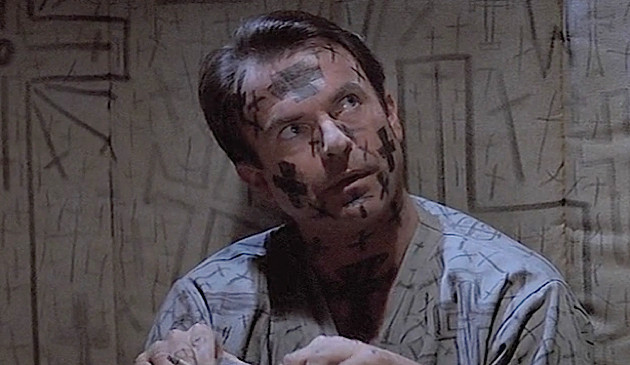
In the Mouth of Madness presents an intriguing premise that fully embraces the eccentricity of cosmic horror. After the disappearance of horror writer, Sutter Cane (Jurgen Prochnow), an insurance investigator, John Trent (Sam Neil), is sent to investigate the mysterious vanishing act. The investigation leads Trent to the little East Coast town of Hobb’s End, a town that exists as an invention of Cane’s warped imagination.
It is the film’s structure that makes this a terrific tale of cosmic horror. Due to the plot unfolding in flashback form, not only does the movie pay homage to Lovecraft’s common literary device, but the film also becomes largely about watching the compelling series of events that shatter Trent’s brain. As the plot goes on, each new encounter increases in intensity and trippiness. A non-linear and hallucinogenic style begins to emerge and further show new cracks in Trent’s sanity. The film also wastes no time diving into the story. A little under ten minutes are spent in the present before returning to the past, and while this could appear rushed, it is plenty of time to peak one’s curiosity without dragging.
In the Mouth of Madness also does a fantastic job incorporating Lovecraft references. Along with a Cthulu shoutout, the passages from Cane’s books read aloud in the film are in essence direct quotations from H.P. Lovecraft short stories. In addition to the passages, the titles of Cane’s novels are also clear homages to Lovecraft tales. The title itself, In the Mouth of Madness, is even a slight alteration on Lovecraft’s “At the Mountains of Madness.”
In the Mouth of Madness may not be John Carpenter’s most highly acclaimed cinematic endeavor, but it is a film worth checking out.
7. Prince of Darkness (1987)
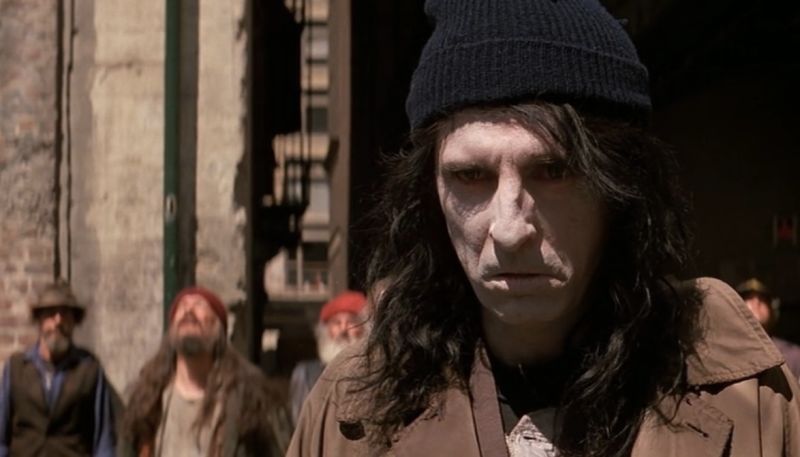
Prince of Darkness is another marvelous Carpenter entry that fully explores the fascinating possibilities of cosmic horror. Looking around a church cellar, a priest (Donald Pleasence) finds an unearthly vial filled with slime. Soon, this finding leads to a group of elite scientists and academics, who not only learn that the odd liquid is the essence of Satan, but student Kelly (Susan Blanchard) becomes Satan embodied.
In many respects, Prince of Darkness should be messy cluster of ideas. However, the different areas of horror tackled in the film never feel out of place. The themes are relevant and as complex as the philosophy behind cosmic horror. Body horror, demonic possession, and mind control are all covered in the film, but the movie does not stop there. Apocalyptic unease, urban terrors, and reality as a falsehood also exist.
Prince of Darkness is a daring movie that thankfully holds nothing back.
6. The Cabin in the Woods (2011)
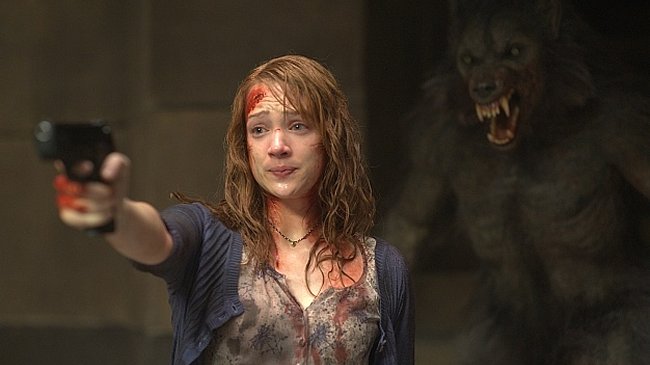
Cabin in the Woods is a masterpiece that cosmic horror can easily claim. The plot centers around five college friends (Kristen Connolly, Chris Hemsworth, Anna Hutchison, Fran Kranz, Jesse Williams) as they arrive at a remote cabin. One by one, each person falls prey to backwoods zombies (not regular ones) brought about by two scientists (Richard Jenkins, Bradley Whitford) to fulfill a shocking purpose.
The film’s cosmic deconstruction of the horror genre is something like never before seen in the entertainment industry. The standard-issue characters and seemingly straight-forward plot truly transform. Rather than suffering through stereotypes meant to be taken seriously and dated storytelling, the witty cliches and unforgettable twists continue to amaze. This love-hate letter to horror features surprises at every turn, and the film becomes the total embodiment of the saying, “Wait… there’s more!”
As the movie comes to an end, spectators have taken the most amazing, surreal, and frightening trip of their lives. Cabin in the Woods ventures so far off the meta map and breaks so many rules it seems impossible to return to any sense of normality. However, the film does remain grounded in some capacity due to its application of some of the greatest homages to horror movie villains the genre has every created.
Cabin in the Woods is a glorious free-for-all of scares, humor, and creativity.
5. Pulse (2001)
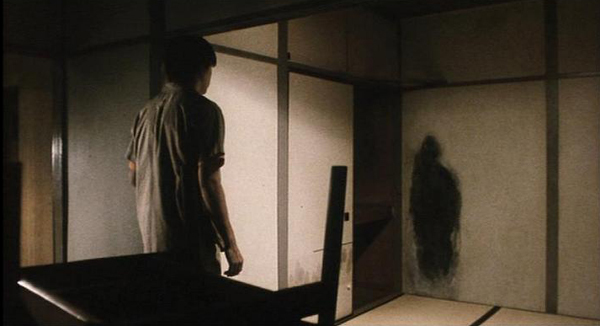
Pulse is a solid cinematic source of eerie chills. In the film, college student Taguchi (Kenji Mizuhashi) commits suicide. After this death, several young people living in Tokyo receive awful visions transferred across the Internet. As more people die throughout the city, the Internet becomes a breeding ground for wicked spirits.
Pulse (Kario in Korean) deeply examines the cosmic concept of the terrors that modernity can reveal. Kurosawa takes the fears surrounding the anonymous, influencing internet and broadens them. The figures in the film are not just mindless, spooky ghosts. They are ghosts who are a part of a lonely, sadly familiar, and overcrowded world. The movie does not sugarcoat the realization that metropolitan life can be a sequence of depressing repetitions and routines. By unglamorizing the afterlife, Kurosawa reduces it to solitary and melancholy activities.
In the end, Pulse becomes an extremely daunting nightmare: a life unlived and devoid of wonder.
4. Masque of the Red Death (1964)
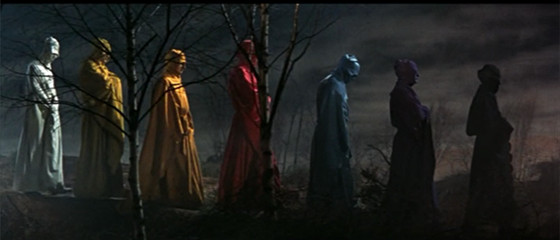
While Edgar Allen Poe may have cemented his place in gothic storytelling, he dabbles with cosmic horror through the creation and Corman’s adaptation of The Mask of the Red Death. The film follows Prince Prospero (Vincent Price), a cruel medieval Italian prince who has devoted his life to evil and the worship of Satan. As the Red Plague ravages numerous villages, the Prince locks himself and his nobility away in his castle to hide from the plague while also enjoying the spoils of wealth.
In series of Poe adaptations, this film is a career highlight for Price. Price is elegant in his mannerisms and delivery of dialogue. He also portrays a villain with a multitude of layers. Prospero is not a mindless sadist. The key factor in making Prospero such a cynical and engaging villain is the meaning behind every misdeed. Every ruthless action is designed to teach a lesson, and the unforgivable Prospero even has standards. With the arch of an eyebrow, Price scoffs at lesser villains who ignore the philosophical point of pain and display blind self-interest that earns them brutal ends.
Along with Price’s performance, it is the commentary from Poe’s tale that is handled wonderfully. Just as Lovecraft stresses the insignificance of humans, Poe does the same. The Masque of the Red Death is the epitome of death as mysterious, unavoidable, and indiscriminatory entity. No human being is too special, rich, or powerful to avoid it.
The Masque of the Red Death boasts a strong performance from Price and an impressive appearance from Poe into the cosmic horror genre.
3. The Innocents (1961)
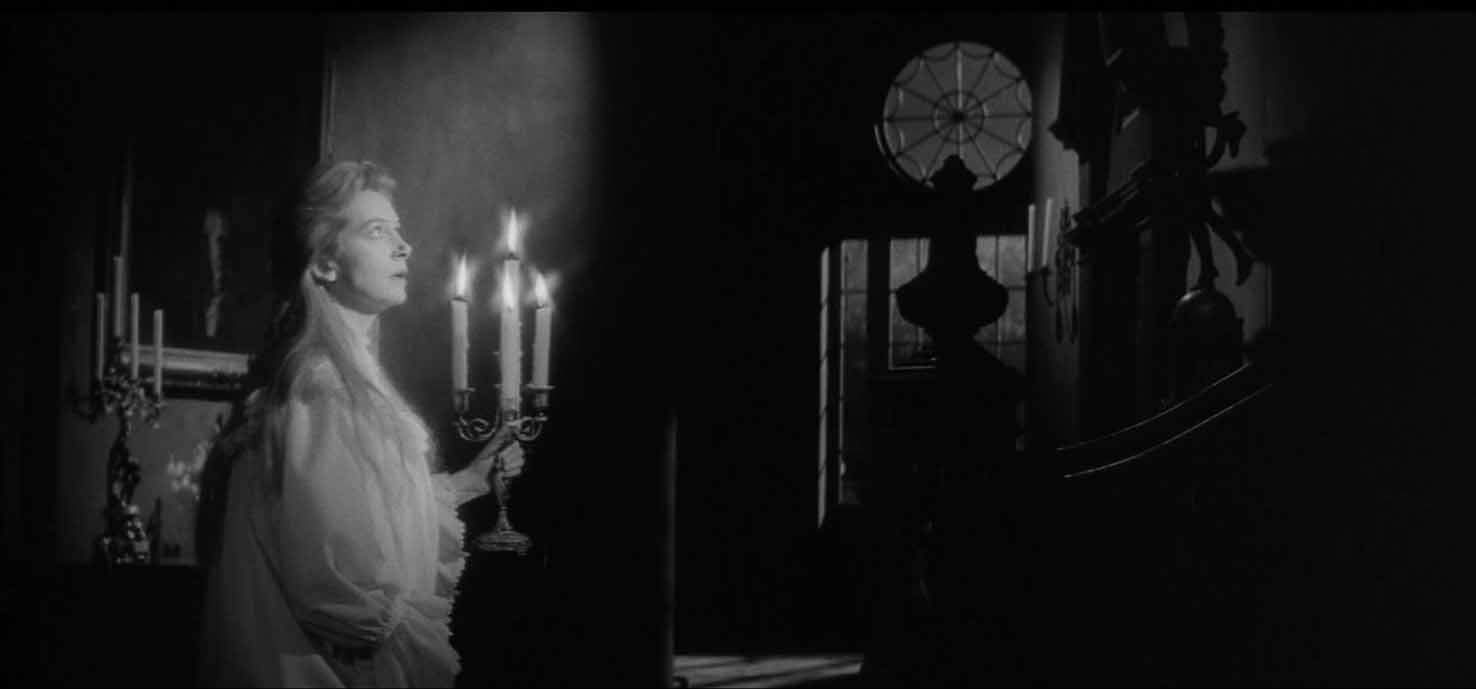
Typically labeled as a supernatural thriller, the film is akin to cosmic horror when viewed from a deeper viewpoint. Based on The Turn of the Screw by Henry James, the plot centers around a woman (Deborah Kerr) who takes a governess job for two orphans, Miles (Martin Stephens) and Flora (Pamela Franklin). Eventually, the new governess begins to see what she believes are ghosts that negatively impact the children’s attitude.
Stephens’ portrayal of Miles is outstanding. There is always the lingering fear of what Miles could accomplish in the future with such prosperity and freedom. Kerr also stands out. Her vulnerable demeanor, loss of control, and desperate unheard intentions create an aura of pure dread that viewers can feel through the TV screen. When combined, both Kerr and Stephens not only tackle mature themes of social divide and isolation, but they create an intriguing powerplay that brings out inner demons in both characters.
This is an unforgettable film with clever ambiguity and a focus on darker motifs.
2. Alien (1979)
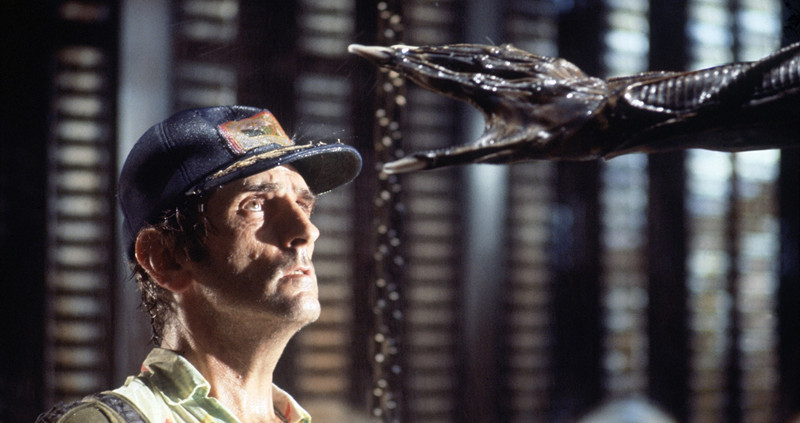
Alien is a timeless classic, and its impact on sci-fi and horror lasts forever. The film is set in deep space and a crew, led by Ellen Ripley (Sigourney Weaver), is returning to Earth until they receive a distress call. Unbeknownst to them, the team takes back with them a terrifying acid-filled creature that becomes a killing machine. As they try to survive and destroy the monster, it is clear no one can hear them scream.
One of the great achievements of Alien is its pacing. It waits and allows silence to strike fear in audiences’ hearts. Through Ridley Scott’s directing, the film indicates the magnitude of the crew’s discovery by building up to it with small steps.
Alien also uses a clever and imaginative trick to preserve the freshness and originality of the monster throughout the movie. The malignant force is constantly evolving in appearance and stealth. Because of this continual evolution, viewers never know what the alien looks like, where it is hiding, or its abilities. Audiences are always kept on their toes and cannot relax for one moment.
Lastly, it cannot be ignored that the character of Ripley is a legendary female action hero. Ripley is not tough for simplistic or patronizing reasons. Ripley is inquisitive, smart, formidable, and outspoke, but most importantly, she is utterly human.
Alien is not only an iconic film in sci-fi, but a staple in the cosmic horror genre.
1. Re-Animator (1985)
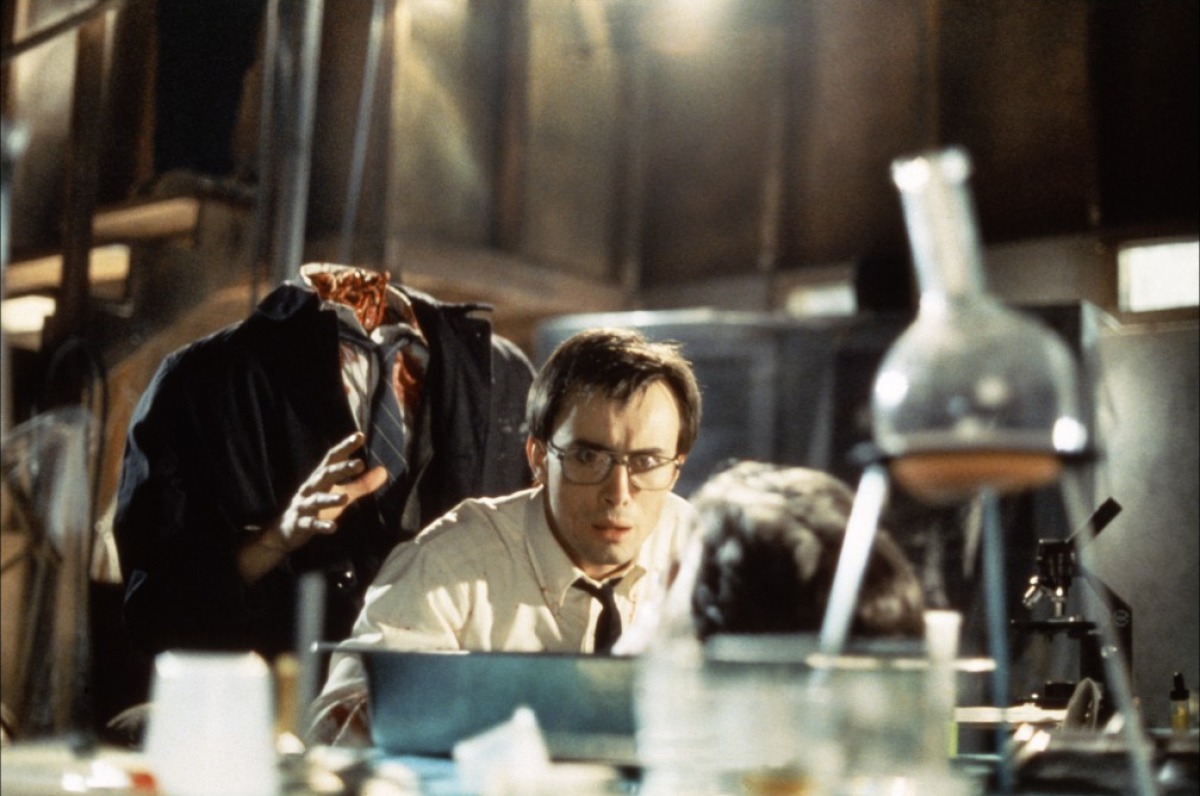
Re-Animator comes across as a masterful exercise in undead theater and Lovecraft adaptation. In the film, Herbert West (Jeffrey Combs) is a young scientist who creates a serum to bring back the dead. However, once reanimated, the dead return as murderous and raving lunatics. It is up to West’s roommate, Dan Cain (Brue Abbot), and Cain’s love interest, Megan Halsey (Barbara Crampton), to stop Herbert’s reign of terror.
From the moment the musical score arrives, audiences know that they are in for a bizarre experience. Viewers are taken on an artistically experimental and exploitative journey that is enthralling to witness. Through the use of comic book art, b-movie thrills, and Lovecraftian mythos, director Stuart Gordon creates a world of horrific consequences in the name of science and ravenous creatures that movie-goers cannot look away from.
Lastly, the cast must also be mentioned as they are the main sources of the comedy that balance out the horror. Jeffrey Combs is a star as the morally-fluid, crafty, and manipulative Herbert West whose dialogue is sprinkled with priceless Machiavellian one liners that everyone can smile at and quote. Abbot and Crampton also have solid chemistry with each other, and both are genuinely sweet and charismatic leads that spectators want to see succeed.
Re-Animator is one of most incredible creations of both cosmic horror and dark comedy.